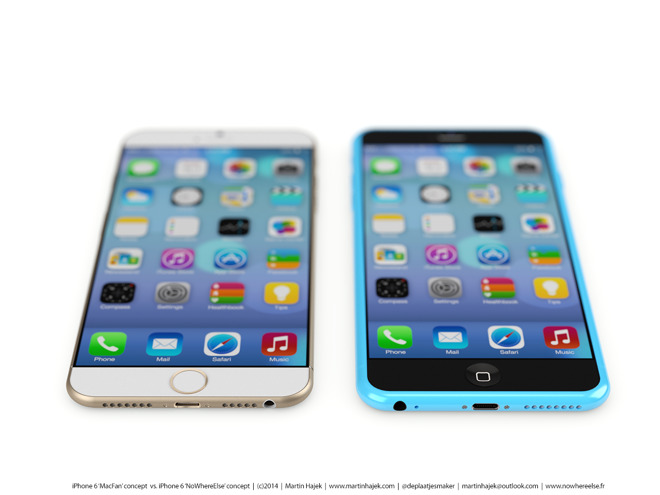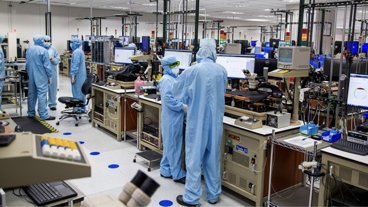The "right to repair" movement was dealt a blow on Tuesday when a federal court judge declined to certify a class in a lawsuit against Apple regarding its handling of iPhone 6 and 6 Plus "touch disease" problems. That same day, a prominent activist and repair professional who helped identify the issue, and subsequently testified in the class action, saw a batch of aftermarket iPhone screens seized.
In a ruling issued this week, District Judge Lucy H. Koh denied two separate motions from the plaintiffs to be certified as a class in the case, as well as an additional motion for injunctive relief. The suit alleges Apple failed to disclose an iPhone 6 and 6 Plus design defect that caused touchscreen problems, a minor controversy later dubbed "touch disease."
In the case of Davidson et al v. Apple, Inc., Judge Koh ruled that the plaintiffs had failed to meet the preponderance requirement to be certified as a class, because "adjudication of the certified issues would not advance the resolution of the underlying case," and because the "plaintiffs' perfunctory request for Rule 23(c)(4) certification fails to show why certification would materially advance the litigation as a whole."
The original suit, which claimed that Apple knew about the "touch disease" defect prior to the release of the iPhone 6 and 6 Plus, was filed in 2016, with more law firms joining the suit later that year.
Koh is the same judge who has presided over various Apple-related cases in the past, including its long-running litigation with Samsung; she is frequently assigned such cases for jurisdictional reasons.
In a purportedly unrelated action, the government seized aftermarket iPhone parts from Jessa Jones, a prominent figure in the right to repair community. Jones is a repair shop owner who helped to pinpoint "touch disease" at the time of the iPhone 6's release; she has been frequently quoted in the media on the topic.
According to Motherboard Jones, who had given a deposition in the Davidson case, had iPhone screens and other parts seized from her this week by Customs and Border Patrol agents. The parts, which are a gray market amalgamation of refurbished screens with an authentic Apple flex cable, are deemed counterfeit and therefore cannot be imported or sold in the U.S.
A fairly common occurrence in the independent repair business, critics claim parts seizures are used by Apple and other companies exert control over the repair market.
At question is what constitutes a counterfeit part. In the case of Jones' shipment, the flex cables on the hybrid iPhone screens bore an Apple logo, thus making resale in the U.S. impermissible. According to a letter Jones received from the CBP, the government shares that view.
"Customs and Border Protection Regulations provide that any article imported into the United States bearing a counterfeit trademark shall be seized and, in the absence of the written consent of the trademark owner, forfeited for violation of the Customs laws," the agency wrote.
Jones and others argue the action is not sufficiently backed by trademark laws; the screens are typically not marketed as "genuine" Apple parts, nor is the tiny logo visible to the consumer following repair.
Jones believes she was targeted by Apple for her contributions to the class action suit, but a CBP official denies those claims, the report said.
Apple has been waging an ongoing battle with right to repair advocates who are fighting for legal precedent to fix their own devices without the help of authorized Apple repair centers. Such authority would require Apple to supply third parties with authentic parts, manuals, tools and other material necessary to perform repairs on its devices.
In April, Apple was defeated in Norwegian court after attempting to stop an independent repair shop owner from using "counterfeit" iPhone 6 and 6S screens sourced from the Chinese gray market. Like similar cases in the U.S., Apple's argument hinged on logos that appeared on the refurbished components.
 Stephen Silver
Stephen Silver







-m.jpg)






 Andrew Orr
Andrew Orr
 Amber Neely
Amber Neely
 Marko Zivkovic
Marko Zivkovic
 William Gallagher and Mike Wuerthele
William Gallagher and Mike Wuerthele



 Mike Wuerthele
Mike Wuerthele








16 Comments
Good win for Apple. When these counterfeit parts don’t work right or cause failures later on who gets the blame? Apple of course, that shitty Apple who makes shitty products that don’t work. The repair shop doesn’t get blamed, Apple does because their logo is on the part.
So all you need to do is scrape off the Apple logo off of the flex cable?
I would be careful messing with Jessa Jones. She probably knows there are more skeletons in Apple's closet.
Another point worth mentioning is that stolen iPhones are a source of ‘counterfeit’ parts. To require genuine Apple sourced parts is another tool for deterring thefts.